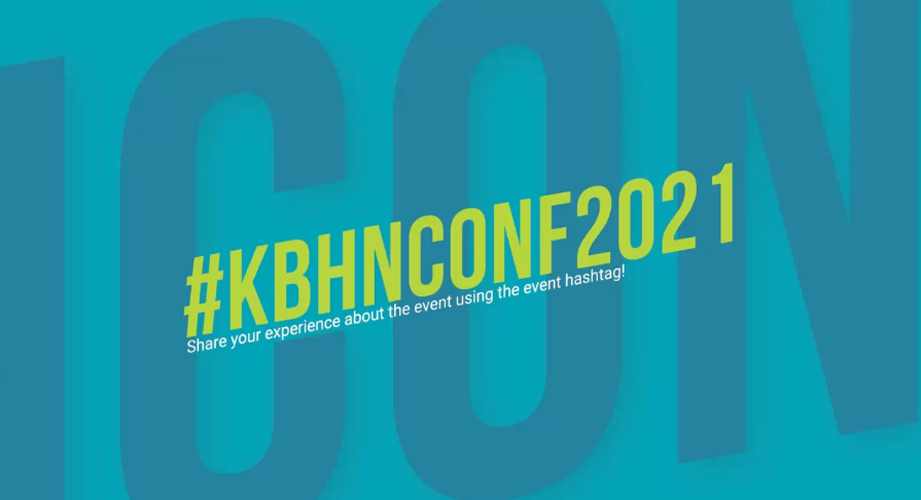2021 Annual KBHN Conference Recapitulation
December 7, 2021 | 2021 Conference, Events

On November 8 & 9, 2021, the Kids Brain Health Network hosted its annual conference, which took place virtually for a second time. Under the theme of “Realizing Change through Partnerships and Research Innovation”, this year’s conference was truly a testament to all we can achieve when we come together.
The conference was opened with Welcome Remarks from Nicky Lewis, CEO, and Dr. James Reynolds, CSO, of KBHN. We were also joined by Dugan O’Neil, Vice-President, Research and International at Simon Fraser University, this year’s Platinum Sponsor. The emcee for this year’s event, Dr. Jody Carrington, offered some inspiring remarks and got the attendees pumped up for the two days ahead. Throughout the entire conference, Dr. Carrington’s commentary and personal insights into the sessions kept everyone engaged through the experience of attending a conference online.
Next on the agenda was the Fraser Mustard Lecture. Dr. Paige Church was the distinguished speaker this year, and presented an evocative talk about Ableism in Medicine, and how we must all overcome this to make our healthcare systems truly inclusive to all. Ableism is defined as discrimination in favour of able-bodied people. You can read more about Dr. Church and her exceptional work here.
This year’s conference also featured a variety of Trainee Lightning Talks, in which KBHN trainees distilled months, or even years, of research into clear, concise, and compelling presentations at 3 minutes apiece. This is no easy feat, and all our presenters did an amazing job!
We also had two poster sessions this year. The first poster session had the theme of “Family Partnership Community of Practice”, bringing researchers and community members with lived experience together. These partnerships demonstrated how there are multiple stakeholders in research projects, and that consulting these different groups can help shape research to better help the targeted groups. Meanwhile, the second poster session focused on research impact and were presented by trainees in our network.
This year’s conference also brought back favourite sessions under the banner of “Better Together: Reflections on Building Strong Partnerships in Research”. Four KBHN-funded project researchers came together to discuss the trajectory and impact of these projects, including:
- Partnering in the co-creation of the Early Detection and Intervention Toolkit – Cerebral Palsy (EDIT-CP)
- “ABLE2’s Fetal Alcohol Resource Program – A Stakeholder-driven project to support children and youth with FASD and their caregivers”
- Researcher-Provider Partnerships in Scaling Autism-Related Socioemotional Supports in the Community (Secret Agent Society Community Evaluation)
- Charting a Course for Infant and Early Mental Health in Canada: Reshaping How we Think and Support Mental Health (The Infant and Early Mental Health – Resource Hub)
Other sessions included:
- “It Takes a Village: Stakeholder Engagement as a Critical Lens for the National Strategy Development and Implementation”. This partnership between the Canadian Autism Spectrum Disorder Alliance (CASDA) and the KBHN Policy Fellowship focuses on the next steps in the National Autism Strategy and its relevance to all developmental disabilities.
- “From #HowNotToDoPatientEngagement to #BuildingBackTrust: Envisioning a Future for Partnership and Engagement” explored example of moments when patient and family engagement had not gone quite as intended and was inspired by Twitter’s sometimes cringe-worthy hashtags.
Notable guests included the Honourable Minister Carla Qualtrough, Minister of Employment, Workforce Development and Disabilities Inclusion of Canada. Minister Qualtrough is a Paralympic Swimmer medal winner and advocate for equity and Inclusion. We were also joined by Dr. Christine Chambers, Professor of Psychology & Neuroscience and Pediatrics at Dalhousie University, Scientific director of Solutions for Kids in Pain (SKIP), and a Tier 1 Canada Research Chair.
The closing keynote was provided by Australian Researcher Dr. Christine Imms, Apex Australia Chair of Neurodevelopment and Disability at the University of Melbourne. She delivered a powerful message about how participation is a human right and crucial to wellbeing, but that many systems, locations, and activities remain inaccessible to people with disabilities.
Finally, Nicky Lewis and Dr. James Reynolds came back to the stage to host the first virtual award ceremony; the awards were presented to trainees and community members who presented during the Lightning Talks and Poster Sessions. The winners can be found here.
This was a successful, informative, and inspiring event, and we cannot wait to host you at next year’s conference!
Written by Ariana Cahn